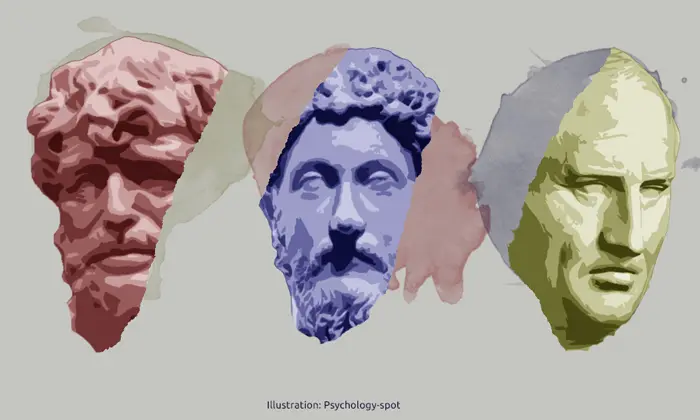
We all want to live better. We want to be happier and have fewer worries. The problem is that we don’t know how to achieve it. We have a goal, but the path to happiness looks tortuous and confusing.
In the Hellenistic period, some philosophers also wondered how to achieve happiness and balance. His answers gave birth to one of the most important philosophical movements of all time: Stoicism.
Epictetus was one of its main exponents. His ideas are centuries old, but they are so topical that they can help us pave the way to happiness in the modern world.
1. To be happy, you must first be free
The Stoics did not conceive of happiness without freedom. Epictetus went so far as to affirm that “Happiness does not consist in wanting things but in being free”. He was convinced that this freedom is achieved by reducing desires to their minimum expression.
“Wealth does not consist in having many possessions, but few desires”, affirmed the philosopher. Attachment to things generates a feverish state that takes us away from happiness and emotional balance. The more things we want, the more we will have to strive to achieve them, forgetting to enjoy the here and now. That condemns us to a cycle of permanent dissatisfaction. The attachment to material things also generates the fear of their loss, which takes us further from the path to happiness.
Therefore, for Epictetus the first step in the search for happiness was to achieve the freedom that comes from detachment from material things, from being aware that we do not need many things. That insight breaks many ties, frees us from many conditioning and social pressures that can become oppressive and distressing, to move forward with a lighter baggage.
2. Get rid of worries – once and for all
Epictetus was the philosopher of non-concern. He understood that to achieve happiness we must not only detach ourselves from the material but also from our thoughts. He said that “The only way to happiness is to stop worrying about things that are beyond our control and will.”
It also warns us that “Man is not so concerned about real problems but about the anxiety that he imagines these problems generate […] Man is not disturbed by things, but by the opinion he has of them […] The events don’t hurt him, but the perception of them yes.”
According to Epictetus, we need to learn to get rid of worries that only add unnecessary weight to our lives. To do this, we must realize that often anxiety, fear or frustration do not come from the events themselves, but from the way we interpret them.
If we consider that something negative has happened, we will react with anger, frustration or sadness. If we think that something negative is likely to happen, we will react with anxiety, tension and fear. However, those emotions are more the product of our judgments than of the events themselves.
“It’s not what happens to you, it’s how you take it. Pain and suffering come from what we tell ourselves about the consequences, about the future, about what is going to happen as a result of what has happened”, explained Epictetus referring to the narrative that we build around the events. How to get rid of that trend?
Understanding that there is a gap between reality and our response allows us to intervene precisely at the stage over which we have some control: our thoughts about what happened. In fact, Epictetus said that “The circumstances do not make a man, they only reveal what is in him.” It all depends on the glass with which we look at it. Our attitude and, ultimately, our happiness will depend on that crystal.
3. Do not fight the circumstances, accept them unconditionally
One of the most important requirements for happiness in Stoic philosophy is radical acceptance. In fact, the Stoics developed different practical exercises to help us accept things. Seneca, for example, recommended making a balance at the end of each day, noting when we get irritated over something trivial or angry over something that doesn’t deserve it. If we are able to perceive those errors, we can improve our attitude the next day and respond with greater equanimity.
Epictetus, for his part, thought that if we expect the universe to give us what we want, we are inevitably doomed to disappointment. On the other hand, if we accept what the universe gives us, our lives will be more bearable and we can be happier.
He gives us some wise advice: “Don’t expect things to happen the way you want them to. Rather, wish them to happen as they happen, and you will be happy.” At the heart of his philosophy was unconditional acceptance, which does not imply submission or resignation, but the simple acceptance of reality as it is.
Only when we objectively take note of what is happening can we change what can be changed and stop worrying about what we have no control over. At that moment we stop reacting automatically to start planning our response. We asume the control over our life.
Epictetus simply proposes us to respond adaptively to the changes that occur in our environment, without presenting a useless resistance, just because those events do not fit with our desires, expectations or vision of the world.
Epictetus believed that “Happiness can only be found within.” He attempted to offer his disciples a path to personal happiness by establishing “requirements” that are still perfectly valid today.



